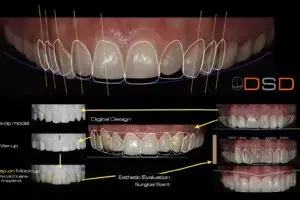What you eat plays a major role in maintaining strong teeth and healthy gums. While brushing and flossing are essential for cleaning your teeth, a balanced diet full of the right nutrients can help keep your smile bright and free from cavities. In this article, we will explore which foods contribute to healthy teeth, what to avoid, and how diet can affect your overall oral health.
Foods That Promote Healthy Teeth
Certain foods are particularly beneficial for your teeth and gums. These foods can help strengthen enamel, fight bacteria, and reduce the risk of cavities and gum disease.
Calcium-Rich Foods
Calcium is vital for strong teeth and bones. It helps to strengthen tooth enamel, making it more resistant to decay. Dairy products like milk, cheese, and yogurt are excellent sources of calcium. If you’re lactose intolerant or vegan, consider fortified plant-based milks, such as almond or soy milk, as they are also rich in calcium.
In addition to dairy, leafy greens like spinach and kale are excellent sources of calcium. These vegetables not only provide calcium but also other essential nutrients that help maintain healthy gums and teeth.
Crunchy Fruits and Vegetables
Fruits and vegetables with high water content and a natural crunch, like apples, carrots, and celery, are fantastic for your oral health. Their crunchiness helps clean teeth and massage the gums, which encourages saliva production. Saliva is crucial for neutralising acids in the mouth, preventing dry mouth, and helping to wash away food particles.
Moreover, fruits like apples and pears are also rich in fiber and vitamin C, which helps to keep gums healthy. Vitamin C is essential for gum tissue repair and helps fight gum disease.
Vitamin D-Rich Foods
Vitamin D plays an important role in oral health because it helps your body absorb calcium effectively. Foods that are rich in vitamin D include fatty fish like salmon, mackerel, and sardines, as well as fortified foods like milk and orange juice. Vitamin D helps maintain strong bones and teeth, and it supports your immune system, which in turn helps protect against gum infections.
Green Tea
Green tea is rich in antioxidants, particularly catechins, which can help fight the bacteria that cause plaque and gum disease. Drinking green tea regularly may help reduce bad breath and lower the risk of cavities and gum inflammation. It’s a great, tooth-friendly alternative to sugary drinks or sodas.
Nuts and Seeds
Nuts and seeds are packed with healthy fats, vitamins, and minerals, which help keep your teeth strong. For example, almonds are a great source of calcium and protein, while walnuts contain omega-3 fatty acids that help reduce inflammation in the gums. Both of these can contribute to maintaining overall dental health.
Foods to Avoid for Healthy Teeth

While certain foods promote good oral health, others can lead to cavities, gum disease, and enamel erosion. Being mindful of what you consume can make a big difference in your oral care routine.
Sugary Foods and Drinks
Sugar is one of the main culprits behind cavities and tooth decay. When you consume sugary foods or drinks, the bacteria in your mouth feed on the sugar and produce acids that attack tooth enamel. Over time, this leads to cavities. Candy, soda, cakes, and other sugary snacks should be consumed in moderation.
If you do indulge in a sugary treat, it’s best to enjoy it during mealtime. Eating sugar with other foods reduces the amount of time your teeth are exposed to harmful acids.
Acidic Foods and Drinks
Citrus fruits, tomatoes, and certain juices are highly acidic and can erode tooth enamel over time. While these foods can provide important vitamins, it’s best to consume them in moderation and rinse your mouth with water afterward to neutralise the acids. Drinking acidic beverages, such as soda or sports drinks, can also contribute to enamel erosion and cavities, so it’s wise to limit your intake of these beverages.
Sticky Foods
Sticky foods, such as caramel, taffy, and dried fruit, can get stuck in the grooves of your teeth and lead to plaque buildup. The longer these foods stay on your teeth, the more damage they can cause. If you do eat sticky foods, be sure to brush and floss afterward to remove any leftover residue.
Alcohol
While drinking alcohol in moderation is generally fine, excessive alcohol consumption can lead to dry mouth, which increases the risk of cavities and gum disease. Alcohol also contains sugars and acids, which can erode tooth enamel. For optimal oral health, it’s best to limit alcohol consumption and drink plenty of water to stay hydrated.
How Diet Affects Gum Health
A healthy diet not only helps to strengthen your teeth but also plays a crucial role in the health of your gums. Nutrients like vitamin C, omega-3 fatty acids, and antioxidants help reduce inflammation and promote gum health.
Vitamin C for Gums
Vitamin C is essential for the production of collagen, a protein that supports the structure of your gums. A deficiency in vitamin C can lead to bleeding gums and an increased risk of gum disease. Citrus fruits, strawberries, bell peppers, and leafy greens are excellent sources of vitamin C.
Omega-3 Fatty Acids for Inflammation
Omega-3 fatty acids, found in foods like fish, walnuts, and flaxseeds, have anti-inflammatory properties that can help reduce gum inflammation. This is particularly beneficial for individuals who are at risk for gum disease. Omega-3s may help reduce the severity of gum disease and improve overall gum health.
Conclusion
What you eat is just as important as how you care for your teeth. A well-balanced diet that includes calcium-rich foods, crunchy fruits and vegetables, and foods high in vitamins and minerals can help keep your teeth strong and your gums healthy. At the same time, limiting sugary, acidic, and sticky foods can prevent cavities, gum disease, and enamel erosion.


